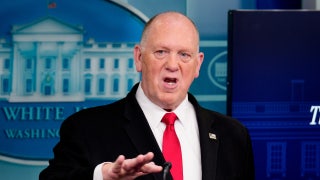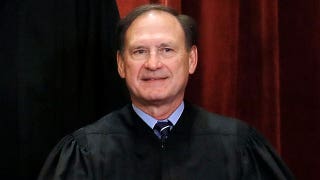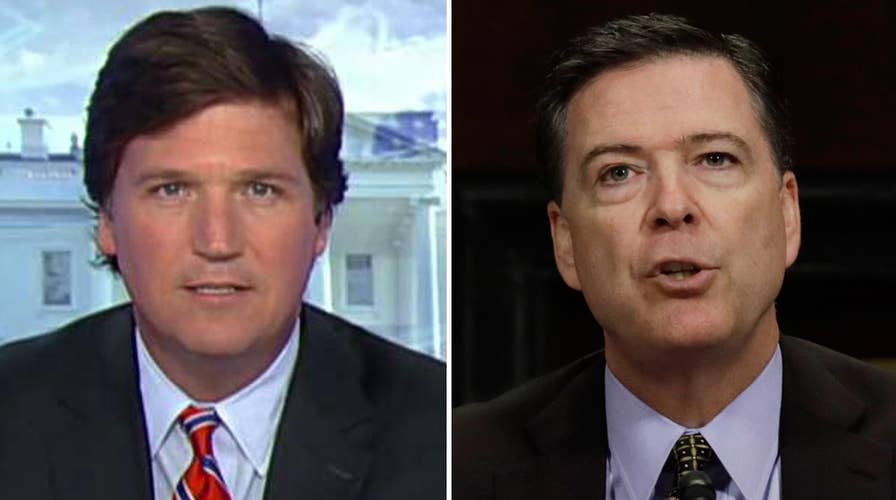Tucker: Comey's firing was long overdue
Tucker Carlson: FBI director was unfit for office and had become too powerful #Tucker
President Donald Trump finally made a tough call on which both Republicans and Democrats should agree. On Tuesday, he fired James Comey as director of the Federal Bureau of Investigation, years short of his full 10-year term. Trump removed a director who believed himself above regular Justice Department procedures and traditions and took the unprecedented step of publicizing – three times – decisions that affected the course of the 2016 presidential elections. But, unfortunately, Democrats will likely continue their scorched earth tactics and portray a decision for the best interests of the nation as a Nixonian effort to interfere with the ongoing investigation into Russian meddling in the Trump administration.
If not fired by either President Barack Obama, a President Hillary Clinton, or President Trump, Comey should have resigned last year. Last summer, Comey publicly announced a decision not to refer Hillary Clinton and her aides to the Justice Department for prosecution. According to Comey, Clinton was “extremely careless” by diverting classified information through a home-brewed computer network which deliberately avoided the official system of the State Department — even though the FBI found that Clinton had sent 110 e-mails in 52 e-mail chains that contained classified information, that she had not turned over all relevant e-mails, that she had used her private e-mail system while visiting our adversaries, and that her system had probably been hacked by them.
But Comey found that no reasonable prosecutor would bring charges because the FBI could find no “clearly intentional or willful mishandling of classified information or vast quantities of information exposed in such a way to support an inference of intentional misconduct or indications of disloyalty to the United States or an obstruction of justice.”
Comey’s decision badly misinterpreted the law at issue, Section 793(f) of Title 18 of the U.S. Code, which required only “gross negligence.” Comey also turned a blind eye to the circumstantial evidence: why would Clinton create a private e-mail system other than to evade the secure, classified system that the law required her to use?. Comey also ignored past prosecutorial decisions: the Justice Department had prosecuted former CIA directors (John Deutch), national security advisors (Sandy Berger), and generals (David Petraeus) for mishandling classified documents.
We should not seek the removal of a federal official for making a bad decision; if that were the standard, Washington, D.C. would quickly become a ghost town. More important than the decision was Comey’s arrogation of power. Under the traditional division of authority between the FBI and Justice Department prosecutors, the former investigate the facts of a case, but the latter make the decision on whether to bring federal charges in court. Comey seized the power over making the decision whether to charge Hillary Clinton and her aides from the career Justice Department prosecutors who handle such difficult cases and made the decision himself. For that decision alone, Comey should have resigned, and if he would not go willingly, the White House properly had grounds to remove him.
After publicly closing the case, Comey suffered a bout of cold feet shortly before the election. He publicly re-opened the investigation with a few days to go before the election, on the grounds that FBI agents had found that Clinton aide Huma Abedin had forwarded classified information to her husband, Congressman Anthony Weiner. Then, days later, he publicly closed the case again. It is difficult to blame Hillary Clinton for blaming Comey for her defeat, or, as she put it, "I was on the way to winning until the combination of Jim Comey's letter on October 28 and Russian WikiLeaks raised doubts in the minds of people who were inclined to vote for me but got scared off."
Comey’s three interventions in the election could well have decided the outcome of the case. His initial choice to prematurely close the investigation – as well as reports that his aides have attempted to shut down inquiries into the Clinton Foundation – thrust the FBI into partisan politics in the middle of a presidential election. He compounded the problems by publicly announcing his decision each time, which ran clearly against Justice Department practice not to criticize or even explain when prosecutors choose not to bring charges against any target. As Deputy Attorney General Rod Rosenstein properly observed in recommending Comey’s removal, “I cannot defend the director’s handling of the conclusion of the investigation of Secretary Clinton’s emails.” Mr. Rosenstein wrote in another letter released by the White House, “and I do not understand his refusal to accept the nearly universal judgment that he was mistaken.”
Comey further demonstrated his desire for the spotlight, but his instinct for the wrong decision, in the continuing saga of Russian interference with the 2016 elections. According to media reports, he recently exaggerated the number of classified emails that Abedin forwarded to Weiner when he testified before Congress last week. He also has publicly announced that the FBI was investigating the Trump campaign for possible involvement with the Russians, even though it is unclear what laws might have been broken by Trump or his White House advisors. At the same time, it appears Comey has refused to publicly announce that President Trump himself was not a target, although Trump yesterday claimed that Comey had told him three times that he was not.
The reputation of the FBI would be injured if Comey had remained, even if he acted out of the noblest of intentions. He has shown an unerring instinct for publicity in a job where the occupant is best seen but not heard. He has made law enforcement decisions that probably influenced the outcome of the presidential election, a terrible precedent for our democracy. It is best for the nation that the White House place the FBI in new hands as part of its mission to restore integrity to the Justice Department. The FBI needs a fresh start.
If Democrats cared about the integrity of our institutions, rather than scoring partisan points against the White House, they should applaud Trump – hard as it would be for them to do so. White House aides would be out of their minds if they were truly seeking to obstruct the investigation into Russian meddling in the elections. The investigation will continue and firing Comey in the midst of it will only stoke concerns about presidential interference and give rise to even more conspiracy theories. For Trump to fire Comey with these political costs, he must have made this tough decision for the good of the country, despite the heavy, and predictable, criticism it will bring.









































